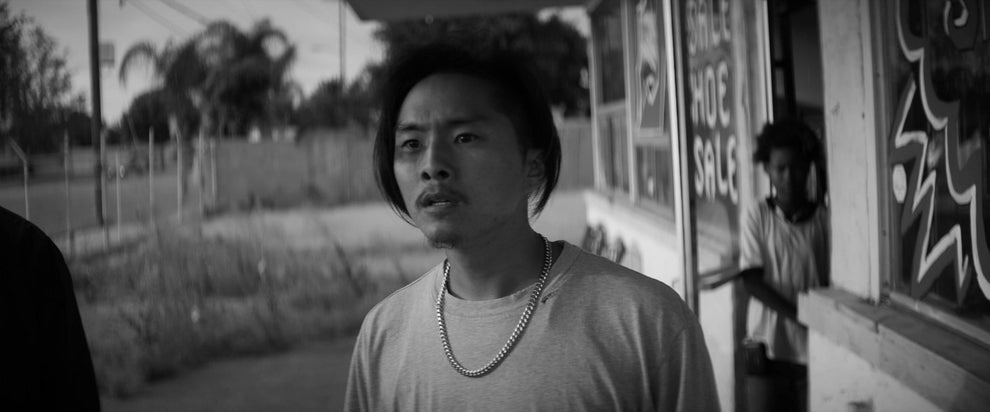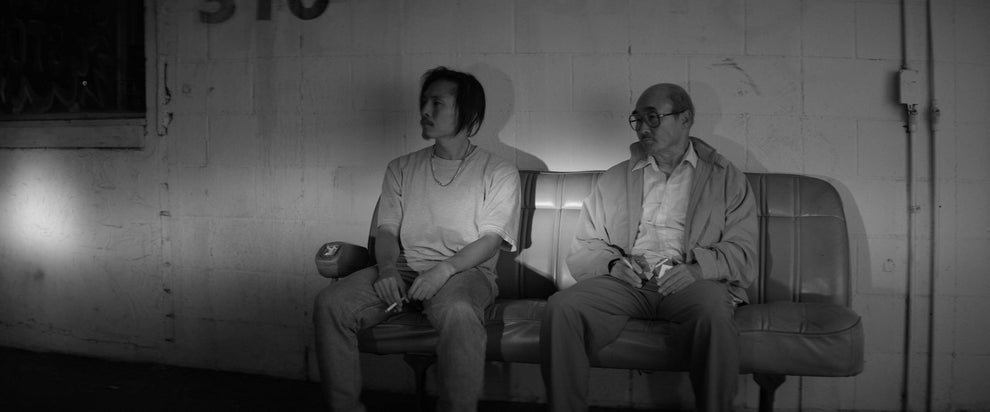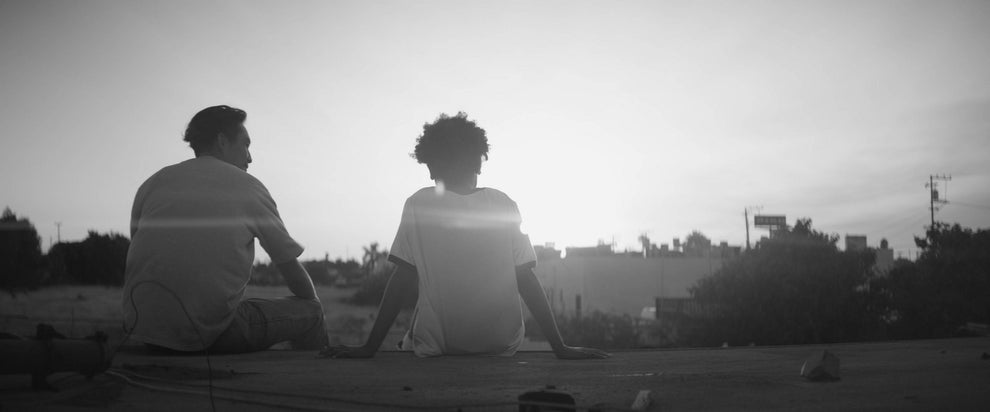Justin Chon’s LA riots–set Gook isn’t your parents’ Asian-American movie.
By Alison Willmore
BuzzFeed, January 29, 2017 —

Justin Chon in Gook Ante Cheng
There are no white characters of note in Justin Chon’s amused-anguished directorial debut Gook, which just won an audience award at the 2017 Sundance Film Festival. The few white faces that appear on screen do so in passing: some staff members at a hospital, the odd customer at the battered LA-area shoe store owned by the Korean-American main characters, a pair of brothers who inherited the business from their late immigrant parents. It’s an absence that’s notable in contrast to the kind of framing many East Asian–American stories onscreen have, unfolding against backdrops of explicit or implied whiteness — whether by way of the generational assimilation at work in The Joy Luck Club, or via the suggestion of the larger, oblivious OC student body the characters of Better Luck Tomorrow have clustered together within.
Gook writer-director Chon, who as an actor may be best known for his work in the Twilight series, sets his story in a mostly black and Latino part of the Compton-adjacent Paramount in 1992. He stars as Eli, who lives and works there with his brother Daniel (David So), dutifully scrabbling to keep the store representing his parents’ aspirations alive while Daniel yearns to get started on an R&B career. They identify with the community in which they grew up, though the community rarely feels the same way about them. The extent to which Eli and Daniel are recognized as locals is peripheral. They’re seen as easy targets, getting jumped by dudes cruising around the neighborhood and flirted with by girls who describe them as cute, for Asian guys, but whose sexual interest extends only as far as the discount on shoes they’re vying for.

Justin Chon and Sang Chon in Gook Ante Cheng
They’re jokes, the straggly Eli and moonfaced Daniel, twin figures of continually thwarted masculinity who are never taken seriously by the men or women around them. (“Did you even fight back?” someone observes skeptically when a beat-up Daniel confesses to having been mugged.) The pair’s closest friend is a young girl, Kamilla (Simone Baker), who takes sanctuary in and helps around their store. “Nobody in this neighborhood likes you,” she informs the siblings matter-of-factly, adding that people think the two are just around to rip them off. She hides rather than be seen out in public with them, but she also loves them like family, like only a kid who’s aware of but hasn’t yet internalized the racial tensions at play could.
Gook takes place on the day of the Rodney King verdict, the news the fuse to the riots that soon explode nearby. And while the film feels as ’90s as its time period — shot in black-and-white and with a loose, semi-episodic, vaguely Clerks-esque hangout structure — its most obvious influence came out in 1989: Spike Lee’s seminal Do the Right Thing, to which Gook is a practically a West Coast homage, burning building and all. Gook’s central character, Eli, is closer to Do the Right Thing’s Sal than he is to Mookie, though there’s some of both to him — he’s an observant insider as well as an unwelcome outsider, wanting to belong to the neighborhood but forever seen as apart from it.

Ante Cheng
Eli understands that he’s not subject to the same sort of violent, systemic oppression that has primed the area to explode, but at the same time, he’s not white either. The figure from Do the Right Thing that actually shapes Gook the strongest is Sonny, the contemptuous Korean grocer across the street from Sal’s who, in the end, saves his business by insisting to the skeptical mob in broken English that he’s one of them — “I no white! I black! You, me, same!” When Eli erupts in anger, it’s against Gook’s Sonny equivalent, fellow local Korean shop owner Mr. Kim (Sang Chon), who sits behind plexiglass with a gun, muttering obscenities in Korean and accusing customers of stealing. Mr. Kim looks, from afar, like the embodiment of everything Eli fears he’s being seen as — a bitter figure sneeringly alienated from the people whose money he has no problem taking but whose problems he has no interest in. Eli’s outburst against his neighbor is a rejection of this categorization, but it’s also a swell of externalized self-loathing.
Gook is a jagged first film, with slack stretches, goofy interludes, and the occasional conversation in which characters are surprised to learn new information it seems impossible they wouldn’t know already. But its pain and frustration are genuine and raw, and drive the portrayal of a conflicted Asian-American experience that has nothing to do with model minority mythology or an assumption of upward mobility, and everything to do with how Asian-Americans are aligned with other people of color. Gook may not come close to the electric greatness of Lee’s 1989 film but, as a gesture in its direction, it’s alive with biting promise.










